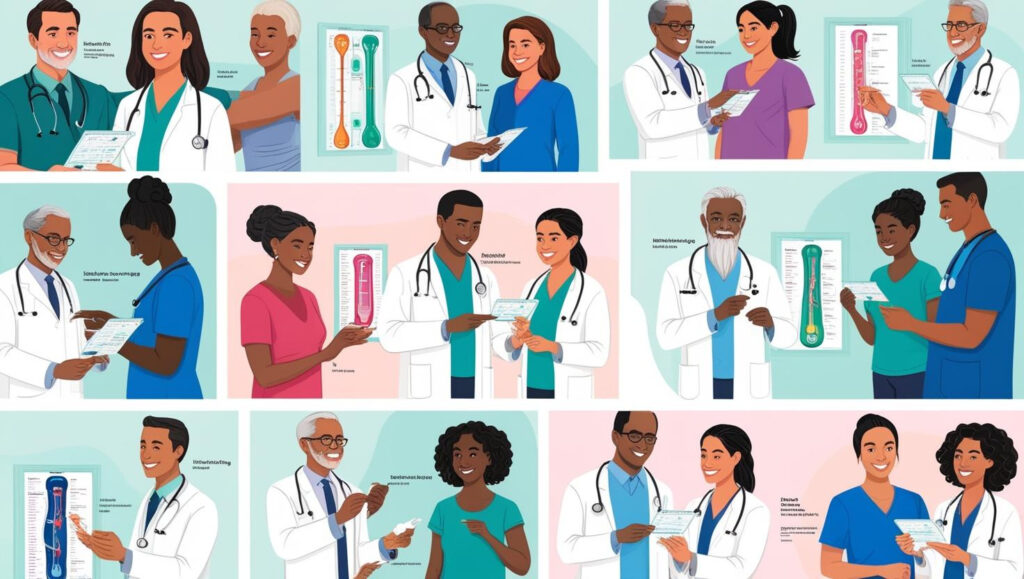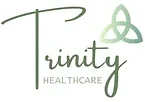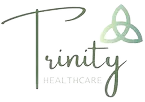- Home
- About Us
- Services
- Primary Care
- Preventative Services
- Transitional Care
- Annual Wellness Exams
- Acute Care Services
- Medical Clearance Examinations
- Chronic Disease Management
- Sports Physicals
- Geriatric Medicine
- Medication Management
- STD & UTI Testing
- Coordination of Care
- Telehealth Services
- Ordering Routine Labs and Scans
- Blog
- Patient Resources
- Contact Us
Essential Health Screenings for Adults You Shouldn’t Ignore

Taking care of your health starts with understanding the importance of early detection and regular check-ups. Health screenings play an essential role in identifying potential risks or diseases before symptoms develop, helping to ensure that you maintain a healthy, happy life.
Key Takeaways
- Regular health screenings are vital for early disease detection and prevention.
- Tailored screenings based on personal risk factors can lead to more effective treatments.
- Convenient scheduling and proactive care are essential for maintaining long-term health.
If you’ve been putting off your screenings or aren’t sure which ones you need, keep reading—we’ve compiled a complete guide to essential health screenings for adults, tailored to help you take control of your health.
Understanding Health Screenings
Health screenings are proactive measures designed to detect diseases in their early stages, often before symptoms appear. These tests, also referred to as screening tests, are vital for catching medical conditions when interventions are most effective.
For example:
- Early detection: Identifying a condition early—like high cholesterol or an irregular heartbeat—can prevent serious health complications later.
- Guided by risk factors: Recommendations for screenings often depend on your age, sex, family history, and other risk factors, according to guidelines from the Agency for Healthcare Research and Quality (AHRQ).
- Improved treatment outcomes: Many diseases, such as heart disease or certain cancers, have better treatment success rates when caught in the earliest stages.
Investing time in regular screenings can pay off by safeguarding your health and improving quality of life.
Essential Health Screenings for Adults
When it comes to health, prevention is key. These essential screenings should be part of your routine healthcare:
1. Annual Physical Examinations
Annual check-ups are the foundation of preventive care. This is your opportunity to discuss concerns, family history, and ongoing medical conditions with your primary care provider (PCP). They can also identify early warning signs of common issues like high blood pressure or weight fluctuations.
2. Cancer Screenings
The National Cancer Institute highlights the life-saving potential of screenings for cancers. Make sure to prioritize:
- Mammograms to detect early signs of breast cancer.
- Colonoscopies for colon and rectal cancer screening.
- Pap tests for cervical cancer.
Each test is tailored to the individual’s risk factors, so speak with your healthcare provider about the appropriate timing.
3. STI Screenings
Sexually transmitted infection screenings are crucial for sexually active adults. Many STIs don’t show symptoms, but they can still affect your health and be transmitted to others. Regular testing ensures safe and informed partnerships.
4. Blood Pressure and Blood Tests
Screenings that include monitoring blood pressure and glucose levels can help identify risks for conditions like hypertension, diabetes, and heart disease. Early intervention is critical to managing these health concerns before they escalate.
5. Lung Cancer and Skin Cancer Screenings
For adults with a history of smoking, exposure to carcinogens, or family history, lung cancer screenings using low-dose CT scans may be recommended. Skin cancer screenings are equally important, particularly for fair-skinned individuals or those with excessive sun exposure.
Screening Tests for Your Optimal Health
Different types of health screenings use a variety of methods to detect conditions effectively:
- Physical exams: Observations such as heart rate, weight, or swelling provide clues about underlying health issues.
- Blood tests: Doctors measure cholesterol levels, glucose, and other critical biomarkers that indicate potential chronic illnesses.
- Imaging tests: Tools such as X-rays, CT scans, or mammograms visualize what cannot be observed externally.
Whether routine or risk-based, these procedures aim to detect early, manageable stages of potential health concerns.
Health Screenings by Age and Risk Factors
Health screenings aren’t one-size-fits-all. Your family history, age, and specific risk factors will largely determine what screenings are most relevant for you.
- Role of family history: Conditions like diabetes, cancer, or heart disease may have a hereditary component. Discussing health histories with your provider helps them create a personalized screening plan.
- Age considerations: Routine screenings, such as cholesterol checks, become more critical as we age. Women should also stay up to date on breast and cervical health screenings, which may change with menopausal status.
Tailored prevention is the key to maintaining long-term health.
Overcoming Barriers to Health Screenings
Preventive care has become more accessible than ever, but obstacles like time constraints, costs, or lack of understanding may hold individuals back. Here’s how to overcome them:
- Preventive care coverage: Many health insurance plans fully cover preventive screenings. However, keep in mind that diagnosing new symptoms or managing chronic conditions may incur additional costs.
- Confidence in your provider: Regular check-ups facilitate open discussions with your PCP about any changes in your body or lifestyle.
- Clear communication: Honest conversations about your risk factors and concerns pave the way for personalized care.
Making your health a priority ensures early intervention and peace of mind.
Convenient Ways to Get Medical Screenings
Healthcare providers now make it easier than ever to fit health screenings into your busy schedule. Options include:
- Online scheduling: Quickly find and book appointments from the comfort of your home.
- Telephone consultations: Speak with specialists about which screenings you need based on your lifestyle.
- Walk-in clinics: Manage your screenings without weeks of advance notice.
At the end of the day, finding manageable ways to prioritize these tests could make all the difference.
Take Control of Your Health Today
Health screenings aren’t just routine tasks—they’re proactive measures that empower you to take control of your well-being. Annual check-ups and tailored screenings ensure you’re equipped with the information needed to make healthy choices and safeguard your longevity.
Remember, neglecting preventive care today could result in more significant costs and complications tomorrow. By investing in your health now, you gain the peace of mind that comes with making informed, proactive decisions.
If you’re ready to ensure your health is on the right track, why wait?
Schedule your health screenings at Trinity Family Practice today for peace of mind—your future self will thank you.
Trinity Family Practice is dedicated to offering personalized, compassionate healthcare for individuals and families in Las Vegas, with a focus on quality care you can trust at every visit.
Address
Contact
+1-725-331-2299



